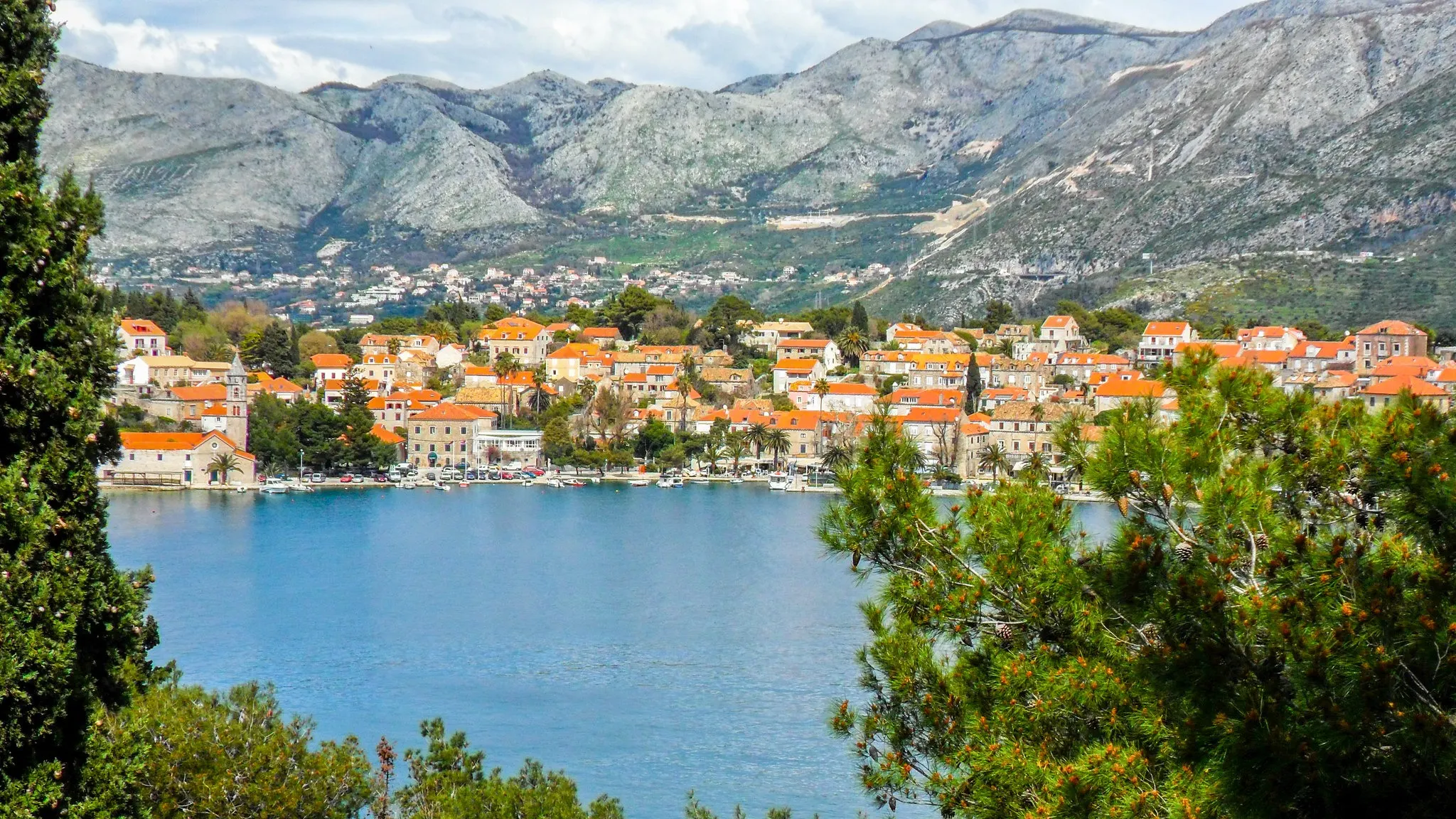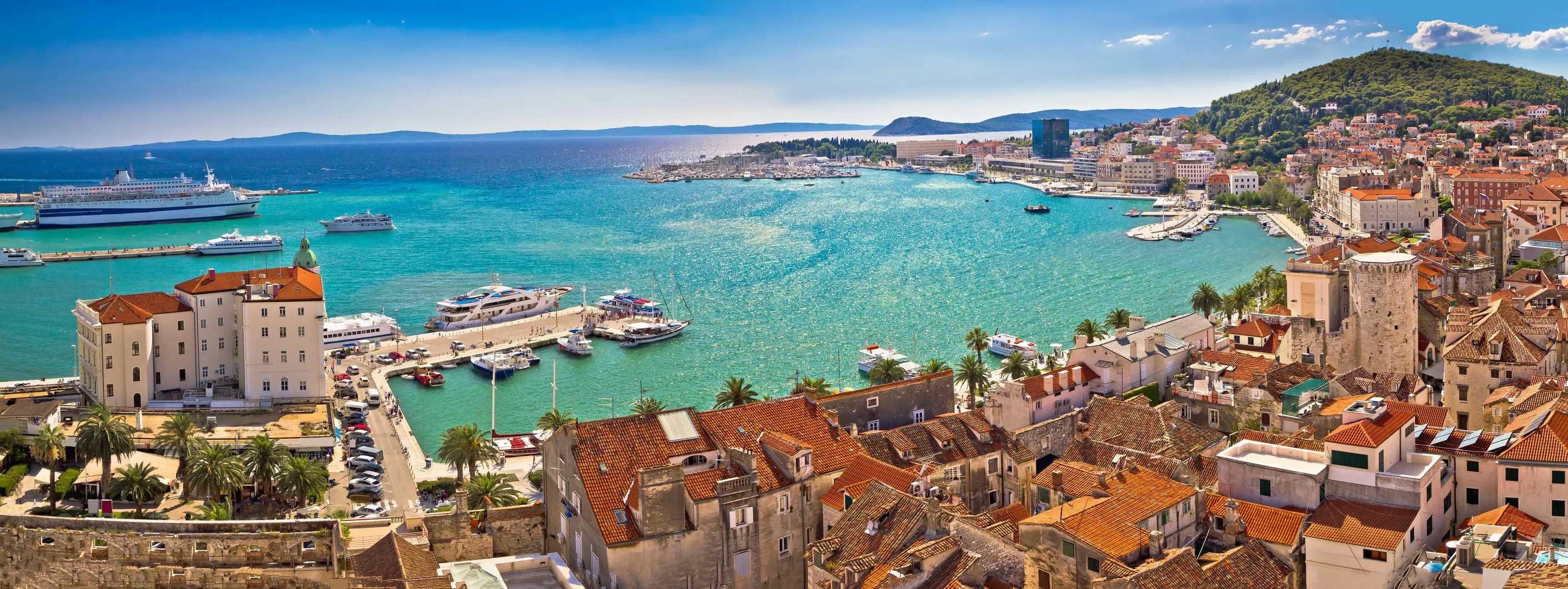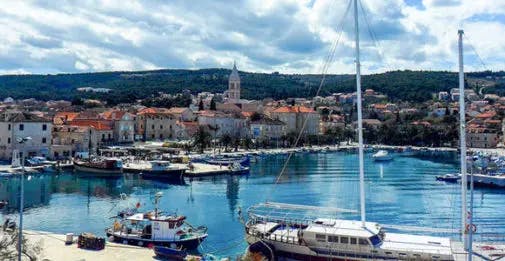Life moves at a relaxed pace in Croatia, not only on the islands, but also on much of the mainland. Sailboats glide on the glittering Adriatic Sea and on palm tree-lined promenades, residents sip coffee as lavender and rosemary aromas fill the air.
A member of the European Union since 2013, Croatia lies in southeastern Europe, across the Adriatic from Italy. Part of the former Yugoslavia until 1991, today, it borders Slovenia, Bosnia-Herzegovina, Montenegro, Serbia, and Hungary.
Similar in size to West Virginia, but, with a staggering array of landscapes, there is something for every taste in Croatia.
How to Move Out of the U.S.
How to Move Out of the U.S.
In all sorts of beautiful, welcoming, culturally rich, saner places around the world, you can live well from $2,000 a month (all in, housing included). Sign up for our free daily IL Postcards e-letter and we’ll immediately send you a free report on the WORLD’S # 1 RETIREMENT HAVEN— plus 9 more spots you should have on your radar. Each day, you’ll earn about the best places to move to, retire, travel, buy real estate, and enjoy a good life for less, overseas.

By submitting your email address, you will receive a free subscription to IL Postcards and special offers from International Living and our affiliates. You can unsubscribe at any time, and we encourage you to read more about our Privacy Policy.
If it’s island living you seek, Croatia boasts more than 1,000 islands (only a few dozen are inhabited). Some, like Hvar, have long been popular with the jet set, while others are virtually unknown to North Americans. On many of the islands, vineyards and olive are ubiquitous. Though lively in the summer, the islands can be especially quiet during the winter months, when tourists go home and some residents head to the mainland. However, many of the islands’ larger communities have year-round ferry connections, offering a lifeline to the rest of the country.
In the northern part of Croatia’s mainland, the Istria region offers coastal communities with Mediterranean flair and hilltop towns reminiscent of Tuscany. In fact, Istria was part of Italy until 1947, so some locals still speak Italian. The region is celebrated for its outstanding truffles, seafood, and olive oil. Biking, hiking, and sailing are popular activities in Istria. Cosmopolitan Venice, Trieste, Ljubljana, and Zagreb are not far away, making them perfect day-trips from Istria.
South of Istria is the famed Dalmatian Coast, home to Croatia’s second largest city, Split, as well as historic Dubrovnik. As you drive the coast, you’ll encounter picturesque towns like Zadar, Primošten, and Makarska, each with a characteristic limestone bell tower punctuating the sky.
The Dalmatians are passionate about food that is domaći — or homemade. At outdoor markets, you’ll find copious amounts of fresh seafood, cheese, olive oil, and organic produce. Many recreational activities revolve around the sea like sailing, swimming, and kayaking. However, for the land-lovers, there are many opportunities for walks in the rugged countryside, or along the seaside.
For those who prefer cosmopolitan city life and cooler winter weather, look no further than Croatia’s capital, Zagreb. The city is situated inland and has a continental climate. Zagreb has the kind of energy you’d expect in a country’s capital, and has an award-winning Christmas market. Elsewhere in continental Croatia you’ll find majestic castles, dense forests, and rich agricultural areas.
While Zagreb offers a dramatic change of seasons, Split’s climate is unabashedly Mediterranean. Split is well-known for its Ancient Roman past. More than 1,700 years ago, Emperor Diocletian had a grand retirement palace built on the edge of the sea. After the fall of the Roman Empire, locals sought shelter within the abandoned palace. Over the course of several centuries they chipped away at the palace walls, eventually constructing buildings within its shell. Today, trendy boutiques, restaurants, and holiday apartments fill the former palace core.
And it wasn’t just the Romans who left behind a cultural legacy in Croatia. In some spots along the Dalmatian Coast, the architecture hints at the country’s Venetian heritage. The symbol of Venice, the Lion of St. Mark, adorns old city walls and water wells. Elegant palaces often flaunt Venetian Gothic flourishes. Croatia was also part of the Austro-Hungarian Empire until the end of World War I. You’ll see evidence of this in many of the country’s stately buildings.
Tourism is an integral part of Croatia’s economy, so real estate prices tend to be higher in tourist hot-spots like Dalmatia and Istria. Still, you can find apartments with sea views for less than $125,000, making Croatia an affordable spot for a Mediterranean vacation retreat or a sunshine-filled retirement.
Pros and Cons of Living in Croatia
By Shawn P. Mitchell

Croatia is an enchanting country. It has a long strip of Mediterranean coastline that primarily faces west. This means that you’ll have vibrant sunsets of peach and cherry colors over a sapphire-blue sea.
The lands of Croatia are rich and fertile. The wines date back to the ancient Greeks and Romans. And Croatian olive oil regularly wins gold medals at olive oil competitions.
But most importantly, the Croatians are some of the most generous and kind people I’ve ever had the pleasure to know. Plus, the level of English proficiency here is incredible.
Let me introduce you to Croatia—a Mediterranean delight in southeastern Europe.
Climate
Pros:
The coastal climate of Croatia is exquisite. Total annual sunshine hours range from 2,665 in the south around Dubrovnik to 2,409 in the north around Rovinj.
Winter temperatures along the coast rarely drop below freezing and snow is infrequent.
Cons:
The summers can be blisteringly hot. As a result, swarms of beach-going tourists descend on Croatia seeking a Dalmatian tan on the sand.
The winds along the coast can be sudden and powerful. It is probably why there are many wrecks of ancient Greek, Roman, and Venetian ships in Croatian waters.
Cost of Living
Pros:
Croatia’s cost of living varies dramatically depending on location. It will also fluctuate based on your consumption habits and housing requirements.
The good news is that if you shop at local markets, you’ll find incredible deals on delicious food and wine. Depending upon the season, you might even be able to buy seafood right from a fisherman’s boat. Or, if you visit a green market, it’s possible to pick up a bag of fresh figs, tangerines, quince, pomegranates, or kiwi for a fraction of the supermarket price.
Also, more discount stores are piling into Croatia after it joined the European Union in 2013. This means increased competition and reduced prices.
Transportation can be reasonably cheap. In the warmer months, discount airlines fly out of regional airports to other exciting European destinations. Ferries to the islands are affordable and the bus network is extensive.
Ride-hailing apps like Uber and Bolt can also be cost-effective. However, they are generally only available in the larger urban areas.
Cons:
Croatia has an onerous web of taxes and regulations. As a result, it may be difficult to get things done. Be sure to enlist the help of local friends and professionals for larger purchases.
Safety & Security
Pros:
Croatia is one of the safest countries in the world. In February of 2020, it was ranked at a “Level One” by the U.S. State Department—the safest category.
The country is also a member of the North Atlantic Treaty Organization (NATO) and the European Union (EU). This means they are protected by large multi-national support structures.
Croatia ranked 28th in the 2019 Global Peace Index, 100 places ahead of the United States (128).
Cons:
Croatia has many sparsely inhabited areas, especially on its islands. As a result, essential emergency services may be slow to arrive in parts of the country.
Croatia is also in an earthquake-prone region and may experience intense seismic activity.
Medical Care
Pros:
If you decide to live in Croatia for longer than three months, you will be required to contribute to the national health insurance system. The system provides universal coverage to the entire population.
Cons:
Croatia’s healthcare network is under increasing strain. The country is hemorrhaging healthcare workers to other EU countries with higher salaries.
The country is also not spending enough. Health expenditures as a percentage of gross domestic product (GDP) stand at 7.4%. This is lower than the EU average of 9.9%.
Language
Pros:
Croatian is the official language. However, a large section of the population speaks English at a high level of proficiency.
The Croatian proclivity for English seems to stem from the use of Croatian subtitles for television and films. In many other countries, English is dubbed into the local language.
Cons:
Learning Croatian can be challenging. The language is South Slavic in origin and is classified as a “Category III” language by the U.S. State Department. These “hard” languages have large cultural and linguistic differences when compared to English.
However, the Croatians are incredibly friendly and patient. They will be very pleased to help you learn the language.
Activities & Recreation
Pros:
Croatia’s bountiful sunshine and warm weather make it an ideal destination for outdoor activities. With over 1,000 islands, it has a wealth of exciting sailing, snorkeling, and scuba opportunities.
The rugged coastal topography of Croatia is perfect for hiking and for wine cultivation. It is also densely packed with fascinating historical sites.
Cons:
Croatia’s cyclical economy is based on tourism. This means that many recreational activities shut down during the winter months. It also means that it can be obscenely crowded in the summer.
Proximity to the U.S.
Pros:
During the warmer months, it is relatively easy to connect to major European transportation hubs by discount airways.
Cons:
During the winter, many airlines stop servicing Croatia’s coastal destinations. This may require taking a bus or a train to a larger international airport.
Quality of Life
Pros:
Croatia has one of the most enviable lifestyles in the world. The Croatians place considerable value on spending quality time with family and friends.
The Croatians relish a good cup of coffee in the Dalmatian sunshine. The waterfront cafes of most coastal towns are regularly filled with socializing kava drinkers.
On the weekends, Croatians also fire up an incredible BBQ dish called peka. This regional specialty takes several hours to cook under hot coals.
Cons:
Croatia’s cumbersome bureaucracy can prove to be excruciatingly frustrating. Simple tasks that involve a government office can quickly morph into a multi-hour-long exercise in pencil pushing.
Many expats have found it incredibly difficult to stay in Croatia for longer than 90 days in a 180-day period. However, for those that have found the secret recipe for a successful visa application, the quality of life in Croatia can be hard to beat.










